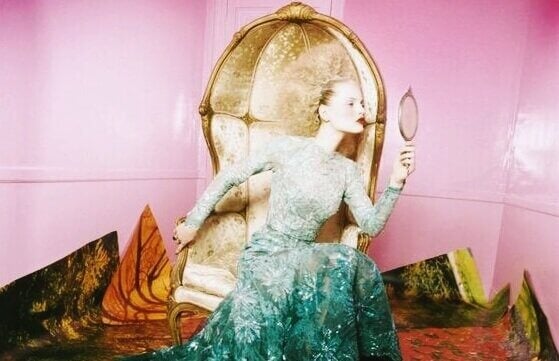Criticism reflects limitations, often imposed by ourselves, which means that we do not want to perceive the raw reality and can cause great frustration.
But why would we want to stop? For fears, but above all for all the beliefs to which we are very attached and which we have never wanted or questioned. However, all this resonates in our lives in the form of problems, the solution for all is in us.
Whenever you criticize someone, ask yourself: do I also have what I see in them?
Then we will discuss these limitations that we face ourselves with the parable of the two monks. This parable contains a very profound teaching and allows us to see how our criticisms reflect the limits we impose ourselves on.
“There were once two Zen monks, Tanzan and Ekido, who returned to their monastery after a long journey. The day before, it had rained and the road was full of mud. As they pass through a small village, they meet a young woman dressed in a splendid golden kimono.
To continue her path, the young woman had to go through a huge puddle, faced with this obstacle she was paralyzed thinking that if she got wet the kimono would ruin it and her mother would scold her harshly. Without hesitation for a second, Tanzan approached the young woman and offered her help: he carried her across the puddle and the two monks continued on their way.
When they reached the monastery, Ekido, who had been uncomfortable for the rest of the trip, harshly scolded his companion:
“Why did you take this young lady in your arms?” You know our votes forbid it!
Tanzan was not worried, looked at his traveling companion and answered with a smile:
– “I carried this young lady a few hours ago, but you always carry her behind your back. “
Justify your limits and you’ll stay there. -Richard Bach-
Thanks to this parable of the monks, we realized that although Tanzan did a good job, the sense of duty and everything he was told not to do weighed heavily on his companion, Ekido. However, as can be seen, he did. I don’t complain about what happened until after a few hours.
We can think about how all this relates to the thoughts of ruminants, those that we incubate in our minds and that, in fact, do not give us anything productive, Ekido’s criticism manifested a conflict that was in his mind, in which he limited himself to do what he certainly thought, first of all: helping the young woman.
Have you ever criticized anyone for not dressing properly?You may not be comfortable with the clothes you wear. Sometimes we don’t realize that criticism reflects the limitations we impose ourselves on. Because, despite the rules, the “acceptable” has always done so. the last word.
To get rid of limitations and thus start to see criticism as a way of seeing parts of ourselves that we are not able to perceive at first, it is important to think of the present, if we want to do something or act in a certain way, we should not wonder if it will be okay, or if they will look at me badly, and other similar doubts.
Let us do this, and then let us abandon this situation, as Tanzan did, because if we stop to listen to our own limits, in the end we will carry unnecessary weight, besides, we must not forget that that weight will increase as similar situations occur.
It is also important that we learn to question our beliefs. Well, we think they make us better people if we follow them to the letter. However, stocks weigh more. Having very strict beliefs will prevent us from being free to act in the moment, create barriers, limit ourselves, and therefore not feel well.
Stop asking questions like, “Should I do this, can I do it?”Start prioritizing the question: “I want to do this. “
Beliefs are there to be challenged, reviews are there to help us see other parts of ourselves that we don’t know. All of this is not an opportunity to deny what we do not want to accept, but to learn and grow. We all have limits, but many of them have been imposed on us. We stay in our thoughts much longer, rather than acting the way we want right now.

